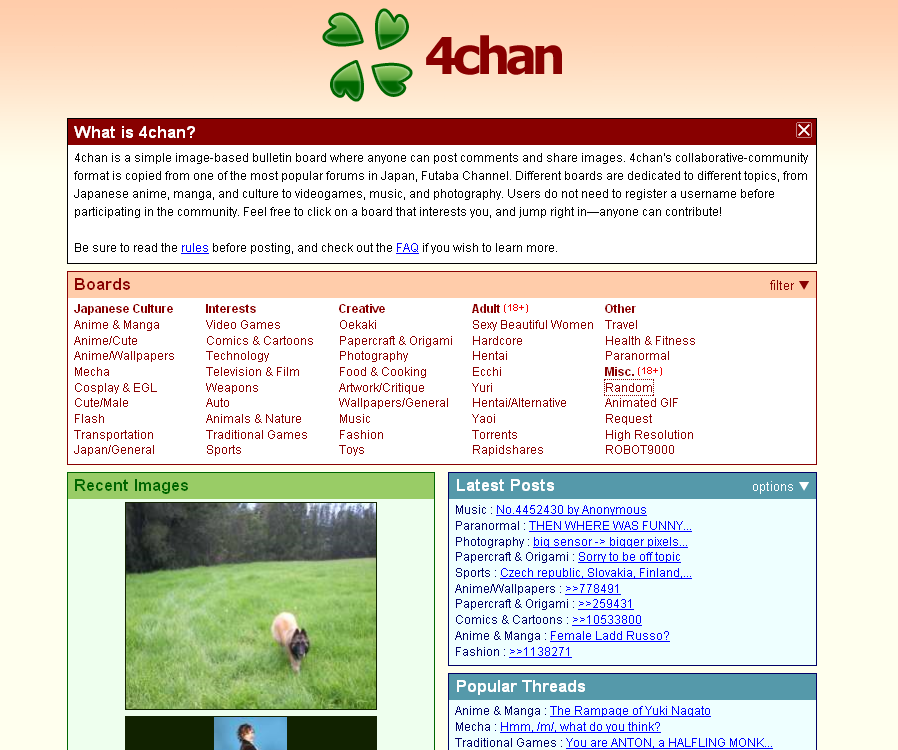History
In 1979, a distributed communication system called Usenet was created as a joint project between the University of North Carolina and Duke University. It was a type of mailing list that allowed users to post an article that other people could respond to. Conversations on Usenet were called message threads because of the linear post-and-response pattern. It is one of the oldest social networks still in existence.
Over the next few decades, Usenet spawned much of what we know as the Internet today—Tim Berners-Lee actually announced the launch of the World Wide Web on Usenet. Much of the slang we use today began on Usenet, and a strong argument could be made that web spam first happened there, too.

Figure 8-1. 4Chan is one of the most popular English-language forums.
Modern threaded discussions happen on sites known as forums. Unlike social networks, there is no single dominant site in the United States—instead, there are several hundred fairly popular forums. One of the largest in English is 4Chan (see Figure 8-1). Conceived as America's answer to Japan's hugely popular anime discussion forum 2Channel, 4Chan has spawned some of the largest and most pervasive recent Internet sensations, including LOLcats and Rickrolling.
Forums since Usenet have had insular communities with inside jokes and jargon, and new members—known as newbies or n00bs—are often ridiculed (especially on the more ...
Get The Social Media Marketing Book now with the O’Reilly learning platform.
O’Reilly members experience books, live events, courses curated by job role, and more from O’Reilly and nearly 200 top publishers.

